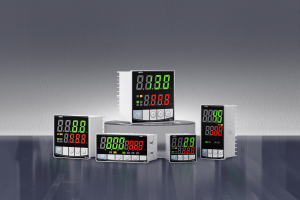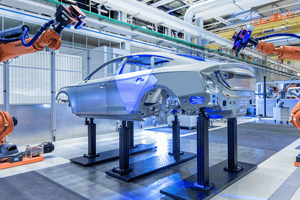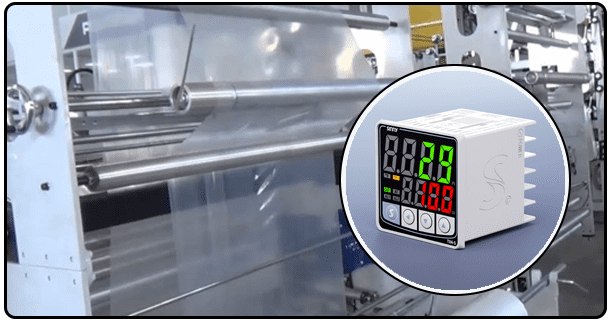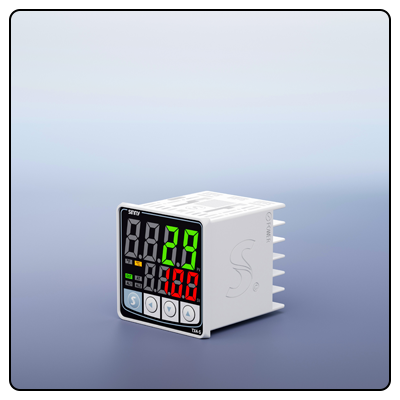The Role of Temperature Controllers in Modern Industry
Explore the pivotal function that temperature controllers play in modern industry by exploring their vital functions: optimizing processes, guaranteeing product quality and increasing energy efficiency.
Introduction
Temperature regulation plays an increasingly crucial role in industrial environments and product quality assurance, according to recent studies. Successful temperature controller systems can increase process efficiencies up to 30%;
1. Understanding Temperature Controllers
A temperature controller is an electronic device used to maintain an ideal temperature within a defined range, usually by controlling heating or cooling systems and periodically checking against its set point before making necessary adjustments as required.
How They Work
Temperature controllers function by taking input from temperature sensors and processing their data before controlling actuators accordingly to maintain optimal temperatures. They monitor any discrepancies between actual temperatures and set points and make necessary adjustments until reaching desired conditions are attained.
Temperature Controller Types
On/Off Controllers: These controllers turn output on or off when temperatures surpass their preset values, providing straightforward but cost-efficient temperature management that may cause fluctuations.
Proportional controllers: Proportional controllers adapt their output based on any temperature differences between set point and actual temperatures for more stable control.
PID Controllers: PID (Proportional-Integral-Derivative) controllers combine proportional actions with integral and derivative ones for accurate temperature regulation with steady results. They offer precise temperature regulation via PID algorithms.
2. Understanding Temperature Control Systems in Industry
Process Optimization
Temperature control is at the core of optimizing industrial processes, helping ensure they run more smoothly while decreasing waste and increasing productivity. Plastic molding processes in particular rely heavily on maintaining optimal temperatures to produce quality products.
Quality Assurance
Temperature controllers play a central role in maintaining product quality and consistency across industries like food processing and pharmaceutical manufacturing, necessitating precise temperature regulation to meet stringent quality standards and protect their products against spoilage or contamination.
Energy Efficiency
Temperature controllers play an essential part in helping industries reduce energy use. By maintaining optimal temperatures, temperature controllers allow companies to maximize energy savings while decreasing heating or cooling needs - leading to significant carbon reduction savings and overall spending reduction.
3. Applications in Different Industries
Manufacturing
Temperature controllers play an indispensable role in manufacturing processes like plastic molding, metal treatment and food processing. Consistent temperature is key for producing defect-free plastic parts while precise control ensures metal surfaces treated have desired hardness properties and hardness levels.
Pharmaceuticals
Temperature Control in Pharmaceutical Production/Storage
Pharmaceutical manufacturing and storage relie heavily on temperature controllers to achieve effective results and safety during manufacture/storage cycles. They help ensure products are produced at ideal temperatures to preserve efficacy and safety during their life cycles.
HVAC Systems
Temperature controllers play a pivotal role in heating, ventilation and air conditioning (HVAC) systems, helping create comfortable indoor temperatures while simultaneously improving energy efficiency by adapting heating/cooling output based on ambient temperatures.
Automotive Industry
Temperature Controllers in Automotive Production For automotive production and testing processes, temperature controllers play a critical role. By keeping specific temperatures inside paint booths, curing ovens, engine testing facilities or engine simulation facilities constant at precise settings ensuring their quality, performance and value for producing top quality parts that deliver.
4. Modern Temperature Controller Features and Technologies
Smart Controllers
Modern temperature controllers often boast advanced technologies and features, including remote monitoring and control capabilities, smartphone app access for adjustments, computer accessibility settings that enable personalized settings as well as multiple mode options that increase user convenience and versatility for user interaction. Such advanced smart temperature controls give users peace of mind since they can manage them from various places such as their smartphones.
Integration with IoT
Integrating temperature controllers with IoT makes data collection and analysis more effective. IoT enabled controllers can communicate directly with other devices for real-time insight as well as predictive maintenance services.
Predictive Maintenance
Advanced temperature controllers play an indispensable role in predictive maintenance strategies by monitoring equipment performance and detecting issues before they lead to breakdown, thus helping minimize downtime and maintenance costs while helping minimize maintenance downtime.
5. Benefits of Using Temperature Controllers
Increased Precision
Temperature Controllers Offer Many Advantages Modern temperature controllers feature impressive precision and accuracy, helping industrial processes maintain the desired temperatures with high precision and accuracy. Such accuracy makes modern temperature controllers perfect for industries requiring precise temperature regulation such as pharmaceutical or food manufacturing production.
Reduced Downtime
By maintaining optimal temperatures and protecting equipment from overheating or cooling down unexpectedly, temperature controllers help minimize downtime while increasing lifespan and productivity, thus decreasing maintenance costs while simultaneously improving downtime costs and productivity. Ultimately this leads to both savings on maintenance expenses and an uptick in productivity gains.
Regulatory Compliance
Many industries impose stringent temperature regulatory standards. By employing advanced temperature controllers, industries can meet them more easily while avoiding legal complications while guaranteeing product quality and product safety.
6. Challenges and Considerations
Initial Costs
While initial investments for installing advanced temperature control systems may seem costly, their long-term advantages of energy savings, improved product quality and reduced maintenance costs often outweigh this initial expense.
Maintenance and Calibration
Proper temperature controller maintenance and calibration are crucial in order to guarantee accurate temperature regulation, prevent process-failures due to inaccurate control settings or process breakdown, as well as ensure accurate temperature regulation at all times. Failing to conduct regular checks could result in inaccurate control settings leading to process breakdown; while neglecting maintenance could result in inaccurate temperatures being controlled as well as possible shutdown of operations.
Compatibility Issues
Integrating temperature controllers into existing systems may present compatibility challenges; to minimize operational disruptions it's critical that any temperature controller chosen fits seamlessly with current equipment and processes.
7. Conclusion
Temperature controllers play a critical role in modern industry by offering precise temperature regulation, optimizing processes and product quality while increasing energy savings. As technology evolves further, smart features and IoT capabilities will enhance temperature controller functionality and benefits - industries should pay heed and invest in reliable temperature controls systems so as to remain compliant and remain competitive over time.
- How Temperature Controllers Improve Operational Efficiency
- Top Applications for Temperature Controllers























